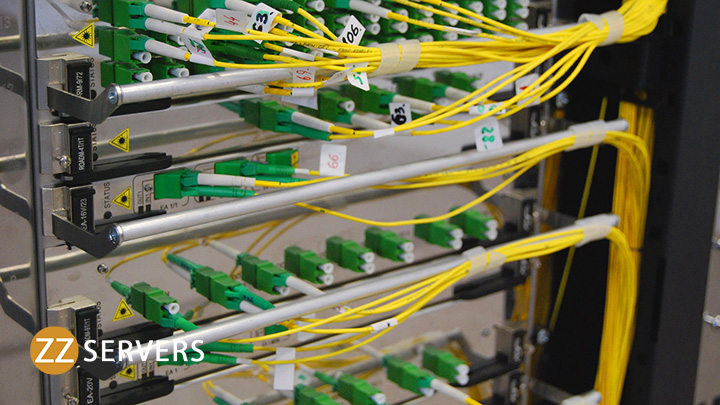Technology is essential for business operations today. However, managing IT infrastructure and support in-house can be complex and expensive. Many companies find greater value in outsourcing these functions to managed service providers (MSPs). This article explains IT support costs and the key differences in costs, benefits, and risks to help businesses decide between in-house IT teams and outsourced IT services.
The Cost of Hiring In-House IT Staff
Salaries Add Up for Specialized Skillsets
An in-house IT team requires multiple staff members with specialized skills like:
- Help desk technicians for everyday user support
- Network administrators to manage systems and hardware
- Software developers for custom applications
- Security experts to handle data protection and compliance
According to PayScale, average annual salaries for these positions range from $55,000 for help desk to over $120,000 for IT leadership roles. Fringe benefits like healthcare easily add 25-30% more to personnel costs.
Larger organizations may need even bigger teams to provide 24/7 support coverage and redundancy in mission-critical roles. Salary expenditures can spiral quickly.
Ongoing Training Is Essential
Technology evolves rapidly. To avoid skill gaps or knowledge obsolescence, IT pros must constantly educate themselves on new software, infrastructure, cyber threats, and compliance protocols.
Labor costs include paid time off for training plus enrollment fees for certifications and conferences. New team members require months of on-the-job training to become fully productive. This further inflates personnel costs.
Purchasing, Upgrading, and Maintaining IT Infrastructure
In addition to staffing, an in-house IT team must acquire, deploy, and manage all of the hardware, software, connectivity tools, and facilities required to deliver services, such as:
- Servers, PCs, laptops, printers, phones, accessories
- Operating systems, productivity software, custom applications
- Internet connectivity, VPNs, Wi-Fi networks
- Backup solutions, antivirus, firewalls, intrusion prevention
- File-sharing systems, telephony, video conferencing
- Physical office space, data centers, wiring
Purchasing licenses and equipment requires major capital outlays upfront. Subscriptions spread out costs but require ongoing spending. And assets must be periodically refreshed to avoid failures or security risks as technology ages.
The Cost Structure of Outsourced IT Services
Engaging an MSP consolidates disparate IT expenditures into a simple monthly fee based on the number of users and agreed services.
Monthly Managed Services Fees
MSPs charge a recurring fee to proactively monitor, maintain, and support the IT environment. Fees vary based on services included, such as:
- Basic monitoring and management of core infrastructure
- Help desk and end-user support
- Cloud hosting and backups
- Business application integration
- Cybersecurity services like firewalls and intrusion detection
- Telephony and connectivity services
Services can scale up or down as needs change. More capabilities increase the monthly fee while removing unneeded services reduces costs.
Incident-Based Billing
MSPs charge additional hourly fees for break-fix incidents and special projects beyond the managed services scope. However, these reactive services are billed at discounted rates compared to standard IT consulting.
Proactive management aims to minimize incidents so associated costs remain low. Variable billing aligns spend to actual usage rather than estimated needs.
No Large Capital Investments
The MSP supplies and refreshes all hardware, software, and infrastructure as part of the service contract. This converts a heavy upfront capital investment into a more manageable ongoing operating expenditure.
MSPs can also leverage economies of scale to obtain bulk discounts passed on to clients. This reduces costs for both parties.

Key Considerations for In-House vs Outsourced IT
Control and Customization
In-house IT staff focus solely on one company’s environment. This enables highly tailored solutions, aligned processes, and hands-on oversight. But the limited scale also hampers efficiency.
Outsourced services offer less customization and control. However, MSPs leverage shared resources and best practices honed across many clients. The lack of client-specific customization is offset by greater overall capability.
Responsiveness and Reliability
Internal teams build institutional knowledge and close relationships with end users. But reliability suffers if key staff leave or take time off. Small teams with little redundancy are vulnerable to gaps in coverage.
MSPs maintain larger, overlapping staff and follow standardized protocols. Reliance on individuals is reduced. However, transitioning to outsourced services involves a learning curve until the MSP grasps the client’s environment and needs.
Risk Mitigation
An understaffed or underskilled in-house team concentrates liability for IT failures within the organization. Recovering from outages and breaches can be challenging without adequate redundancy and expertise. Regulatory fines or lawsuits may arise.
Good MSPs contractually assume responsibility for security, compliance, and business continuity. Robust policies and infrastructure mitigate downtime disruption. Shifting liability to the provider reduces organizational risk exposure.
Comparing In-House vs Outsourced IT
| Factor | In-House IT Team | Outsourced IT Services |
| Cost Structure | Fixed salaries and benefits Capital expenditures on infrastructure Ongoing licensing/upgrade costs | Variable monthly fees Scales up/down based on services No major capital outlays |
| Expertise | IT generalists on staff Limited to team’s skillsets Hard to stay current on latest tech | Draws from talent pool of specialists Economies of scale increase capabilities |
| Responsiveness | Tailored to company’s needs Institutional knowledge | Learning curve initially Then very responsive at scale |
| Reliability | Single points of failure Coverage gaps if understaffed | Redundancy and backup built-in 24/7 monitoring and support |
| Risk Profile | Concentrated internally Costly downtime/breaches | Transferred to provider Contractually minimized |
| Control | Complete control and oversight Customized to preferences | Follows best practices Less customizable |
Get the IT Support Your Business Needs with ZZ Servers
At ZZ Servers, we specialize in fully managed IT services to help companies like yours maximize efficiency while reducing costs. With over 17 years of experience as a trusted IT partner, we understand the challenges of maintaining in-house infrastructure.
Our customized solutions deliver enterprise-level support tailored for small to mid-sized organizations. By outsourcing day-to-day IT management and cybersecurity to ZZ Servers, you can finally take the burden off your shoulders.
Our experts handle everything from help desk requests to network monitoring and defense against complex threats. As your outsourced IT department, we become an extension of your team – providing the technical capabilities you need without the headaches of managing it yourself.
Let us show you how partnering with ZZ Servers can strengthen your defenses, prevent downtime, and give you peace of mind. Contact our team today for a free consultation and quote. We’ll evaluate your infrastructure and build a managed services plan that meets your unique needs and budget.

Conclusion: Outsourced Services Offer Compelling Advantages for Most Businesses
While some large enterprises still need extensive in-house IT, most organizations gain expertise, efficiency, and savings by partnering with a managed service provider. Outsourcing converts fixed labor, infrastructure, and training costs into flexible operating expenses aligned with actual usage. Risks transfer to the provider rather than accumulating internally.
Of course, organizations must thoroughly vet MSPs on dimensions like security, reliability, and scalability. However, the overwhelming advantages of outsourcing make it the best choice for most companies seeking robust, cost-effective IT support.
Frequently Asked Questions
u003cstrongu003eWhat are the main costs of managing IT in-house?u003c/strongu003e
The major costs of in-house IT include staff salaries, benefits, training, purchasing and maintaining hardware/software, facilities, and risk mitigation. Positions like help desk, admins, and security add up. Ongoing training is essential, too.
u003cstrongu003eHow does outsourcing change the cost structure for IT services?u003c/strongu003e
Outsourcing converts fixed in-house costs into flexible monthly fees based on services used. It eliminates large capital investments and leverages economies of scale. Usage-based billing aligns costs with needs.
u003cstrongu003eWhat expertise does an MSP provide compared to an in-house team?u003c/strongu003e
In-house staff tend to be generalists. MSPs provide access to a wider talent pool with specialized skills in networks, security, systems, applications, etc. Depth of knowledge increases through concentrated focus across clients.
u003cstrongu003eHow does outsourcing impact responsiveness and reliability?u003c/strongu003e
Initially, there is a learning curve. But at scale, MSPs can deliver very responsive support 24/7. Gaps in staffing and skills constrain in-house teams. MSPs build in redundancy.
u003cstrongu003eWhat are the main risks and downsides to outsourcing IT?u003c/strongu003e
The main risks are loss of control, customization, and oversight. Overdependence on the provider is also a concern. But contract terms can mitigate risks, and benefits often outweigh drawbacks.


